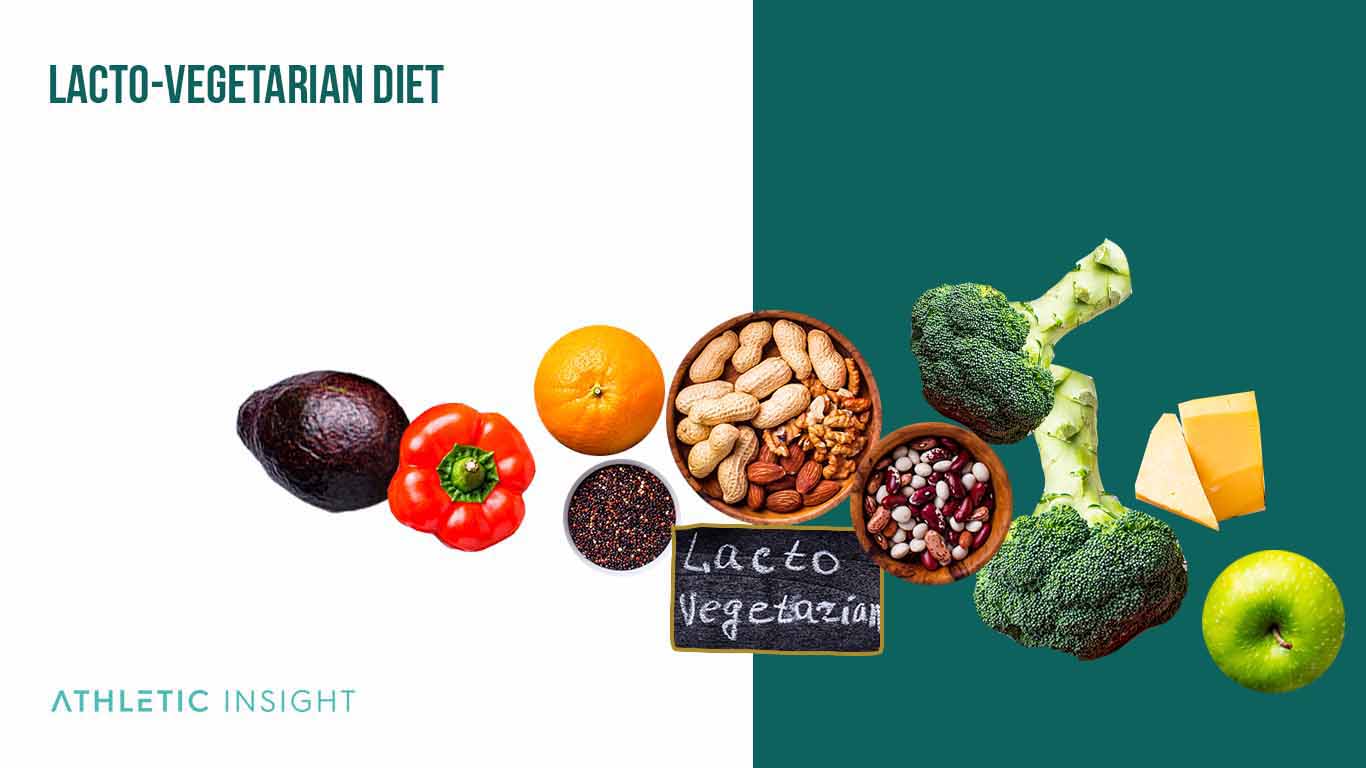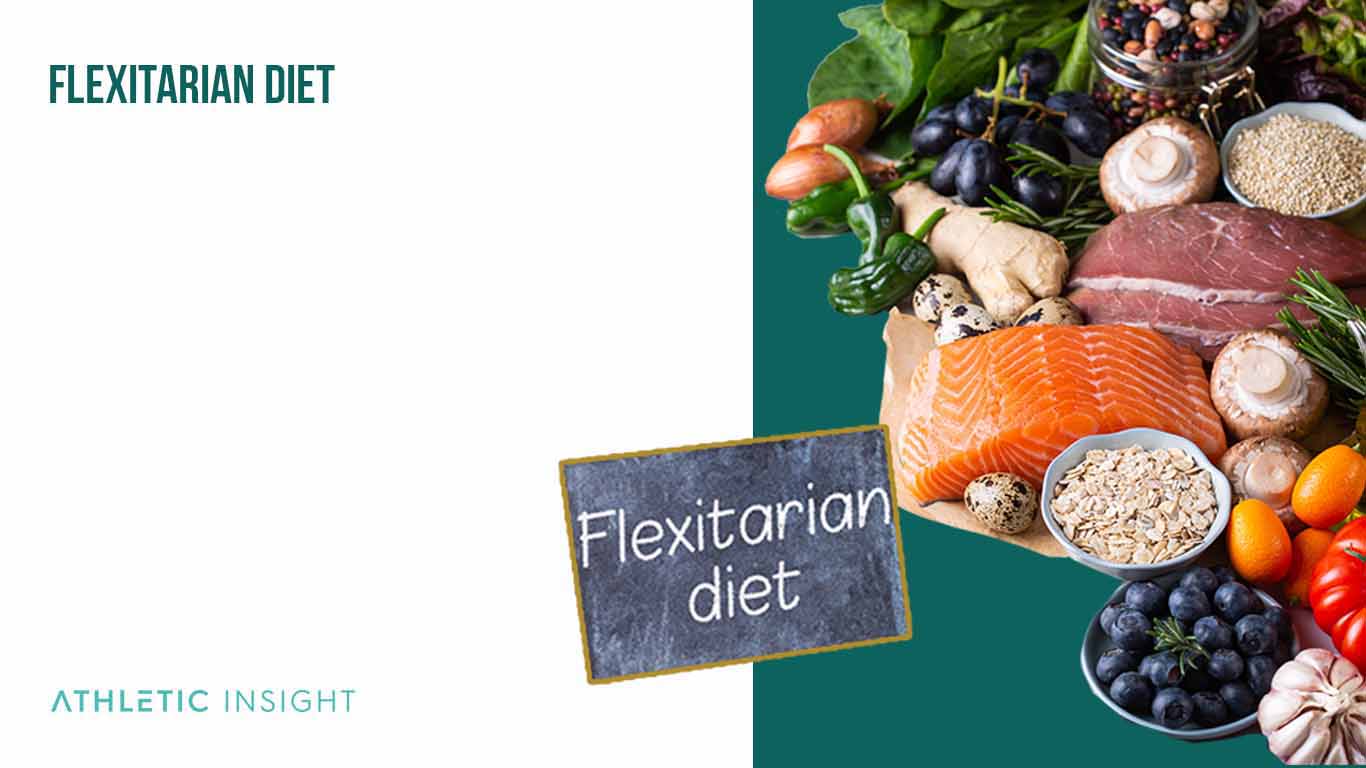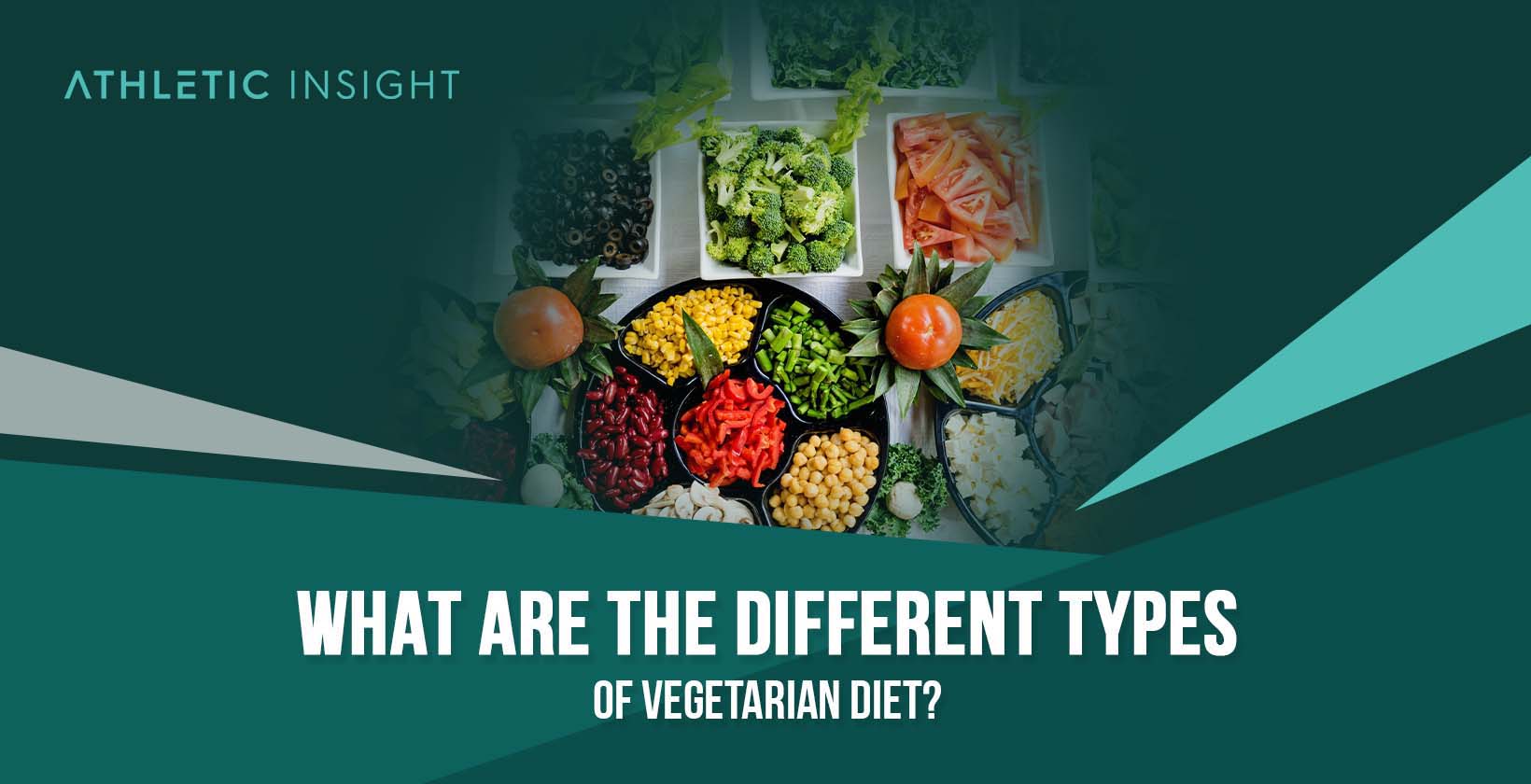There are several different types of vegetarian diets one can follow. They all have slightly different guidelines, but they offer similar health benefits. These vegetarian diet types include; Lacto-ovo-vegetarian, Lacto-vegetarian, Ovo-vegetarian, Pescetarian, Vegan, Flexitarian, and Pollotarian.
While the vegetarian diet is not for everyone, you can not deny the health benefits achieved when cutting out unwanted animal byproducts. To learn about the 7 types of vegetarians, read the guidelines, benefits, and risks of the seven most popular types of vegetarians. This will help so you know what to expect when following one.
- Lacto-ovo-vegetarian: Most Common Vegetarian Diet
- Lacto-vegetarian: Best Vegetarian Diet for Egg Allergies
- Ovo-vegetarian: Best Vegetarian Diet for Lactose Intolerance
- Pescetarian: Best Vegetarian Diet for Fish
- Vegan: Most Strict Vegetarian Diet
- Flexitarian: Most Flexible Vegetarian Diet
- Pollotarian: Best Vegetarian Diet for Poultry
1. Lacto-ovo-vegetarian Diet
A lacto-ovo-vegetarian diet focuses on consuming grains, fruits, vegetables, legumes (dried beans, peas, and lentils), seeds, nuts, milk, cheese, yogurt, and eggs.
On the lacto-ove-vegetarian diet, you cannot consume meat, fish, poultry, or any foods containing these ingredients. Other vegetarian diets, such as vegan, exclude the consumption of eggs and dairy products or any other animal byproducts.
However, lacto-ovo-vegetarianism allows the consumption of animal byproducts, just no animal meat. This vegetarian diet name may sound complex and fancy, but this is one of the most common forms of vegetarianism.
The health benefits of the lacto-ovo-vegetarian diet include reduced risk of high cholesterol, obesity, heart disease, high blood pressure, type 2 diabetes, and certain types of cancer. Plus, it can help people healthily lose weight and solve intestinal problems.
While there are many health benefits, people on a lacto-ovo-vegetarian can sometimes suffer an iron deficiency, resulting in fatigue. There is also evidence this diet can cause insulin sensitivity.
2. Lacto-vegetarian Diet
A Lacto-vegetarian diet is similar to the lacto-ovo-vegetarian diet, except you cannot consume eggs, but dairy products are still fair game. The idea behind this is that one can consume the necessary amount of proteins without meat and animal byproducts, but they need the calcium that comes from dairy.

While some vegetarians need to supplement their calcium intake, a Lacto-vegetarians can consume calcium through dairy
Many young children who practice vegetarianism follow the Lacto-vegetarian diet as they need extra calcium while their bones grow and develop. People also adopt this diet for ethical and environmental reasons rather than health reasons.
The main issue with the Lacto-vegetarian diet is a lack of iron and protein. However, it can also help lower blood pressure and cholesterol, and reduce the risk of heart disease and obesity.
3. Ovo-vegetarian Diet
The ovo-vegetarian diet is similar to the Lacto-vegetarian diet, except you can consume eggs, just no dairy. They consume whole eggs, egg whites, and egg-containing foods, such as mayonnaise, egg noodles, egg pasta, and baked goods with eggs such as cake.
The diet has all the same benefits of lacto-ovo-vegetarianism and Lacto-vegetarianism, except there is less calcium in their diet from the dairy products. It’s specifically known for reducing systemic blood pressure.
However, consuming eggs can make the diet much easier to follow because so many food items use eggs as a binder ingredient.
This diet is typically high in protein but low in sugar and iron, meaning people on this diet can still suffer from an iron deficiency or insulin sensitivity. These first 3 types of vegetarians are the most common.
4. Pescetarian Diet
A pescetarian diet is when you avoid meat and poultry while consuming eggs, dairy, fruits, vegetables, and grains. The main difference that separates the pescetarian diet from many others is that you can consume fish and seafood.

Most people on a pescatarian diet do it to lower cholesterol and sort out intestinal problems, but still, get plenty of protein and adequate amounts of iron from consuming fish and shellfish.
Therefore, the pescetarian diet is rich in Omega-3 fatty acids, which are excellent for heart health and lowers the risk of high cholesterol and some types of cancer.
A pescatarian diet is much more flexible than other types of vegetarians, so many people find it easier to follow than stricter diets. After all, a diet should be something that you can maintain while still following your lifestyle.
5. Vegan Diet
Vegan diets are well-known as the strictest of all the seven types of vegetarians. They do not consume any animals or animal byproducts, so they eliminate meat, poultry, fish, shellfish, eggs, dairy, and even honey in many cases.
Vegans often follow this diet for ethical and environmental reasons to combat the harm that farming does to animals and the earth. However, the diet also has many health benefits for individuals that may be at risk of heart disease and similar health issues.
If a vegan diet is not balanced, it can lead to an array of health issues. These issues include B12 deficiency, lack of hemoglobin or Omega3 and fatty acids, hormone disruption, and poor digestion.
A vegan diet also inhibits zinc absorption and can lead to disordered eating if the diet is done for the wrong reasons.
6. Flexitarian Diet
A flexitarian diet is what it sounds like, it’s a type of vegetarian diet that is flexible. So it focuses on fruits, vegetables, legumes, and grains, but you can eat meat from time to time when following the guidelines.

The flexitarian diet suggests you only eat meat two days a week or only allow between nine and 28 ounces of meat in your diet per week. A popular aspect of this diet is the ability to choose your level of meat consumption while still reducing your intake.
The flexitarian diet is excellent for anyone that wants to eat healthier or make less of a negative environmental and ethical impact. The human consumption of meat is not the problem, but rather the world’s overconsumption of meat.
Unlike the other 6 types of vegetarians discussed above, this flexitarian diet does not cause iron deficiencies, a lack of vitamins, or insulin sensitivity.
7. Pollotarian Diet
A pollotarian diet is similar to pescatarian, except they eat chicken and poultry instead of fish and seafood. If they eat fish in addition to poultry, they’re known as Pesce-pollotarians. So pollotarians can consume all the foods vegetarians do, plus chicken, turkey, duck, pigeon, and other types of bird meat.
The pollotarian diet has the same benefits as most vegetarian diets, such as heart health and lowered risk of cancer. However, it also offers plenty of protein because of the inclusion of poultry.
The only issue some may face on the pollotarian diet is an iron deficiency, but it’s unlikely as chicken does have iron, just not as much as red meat and pork.
The pollotarian diet is excellent for people that want to follow a vegetarian diet, but don’t want to give up their Thanksgiving turkey and other poultry dishes. The diet is still rich in fiber and nutrients that come with vegetarianism.
How to Choose the Best Type of Vegetarian Diet
Following a vegetarian diet can improve your health if you do it correctly. Choosing the best vegetarian diet for you will depend on your needs and willpower. It is important to choose a diet that is easy to maintain and follow.
Flexitarian is best if you think you won’t be able to fight those periodic cravings as it is the most inclusive version of the vegetarian diet. As far as ethical and environmental considerations, a vegan diet is the best choice. However, it isn’t necessarily ideal for bodily nutrition and wellbeing.
Most nutritionists, scientists, and dietitians view the pescatarian diet as the best vegetarian diet because it doesn’t result in a lack of iron or protein but still reduces the risk of heart disease, obesity, and other benefits of vegetarian diets.
Does Blood Type Affect Vegetarianism Type?
While some dietitians and vegetarians have attempted to connect blood types to the 5 types of vegetarians, there is no scientific evidence to support this. There is no connection between blood type and vegetarianism.
Aside from blood transfusions and compatibility among donors and receivers, blood type is not proven to affect one’s health or well-being.
So there’s no reason someone with Type O blood would benefit more or less from a vegan diet than someone with Type A blood.
What Is the Easiest Type of Vegetarian Diet To Do?
The easiest vegetarian diet to follow is usually flexitarian because you don’t have to eliminate any foods.
The flexitarian diet is all about moderation and control. Many people will be strict vegetarians on weekdays and then have some meat on the weekends to indulge.
Allowing yourself to have that one hamburger or piece of chicken makes it much easier to follow the vegetarian diet for the rest of the week. The guidelines are much looser, applying less pressure on people to completely change how they enjoy food.
What Is the Hardest Type of Vegetarian Diet To Follow?
The vegan diet is likely the most difficult vegetarian diet to follow because it is the most restrictive by far. You cannot have any meat, poultry, fish, dairy, eggs, honey, or any foods with these items in them. So much bread is off-limits, as are cakes and pastries.
The vegan guidelines can also include indulgent items that people would struggle to eliminate, like some beers, wines, chocolates, sugars, foods with red dye, and some candy. For example, gummy bears and Worcestershire sauce are off-limits, which many people don’t realize.
What Type of Vegetarian Diet is the Most Expensive To Do?
To determine which type of vegetarian diet is most expensive depends on how you shop and what you like to eat. Typically, people consider vegan diets or pescatarian diets the most expensive. This is because vegan substitutes can be very costly, and fish and seafood are expensive as it is.
When vegans eliminate animal products, they often replace them with vegan versions, like vegan chicken or vegan tuna, but these items are expensive. However, if you don’t opt for these ingredients, a vegan diet can be affordable.
Most people know that fish, shellfish, and all seafood are typically more expensive than poultry or meat. Things you can eat on a pescatarian diet, such as lobster, crab, and oysters, are some of the most expensive items to buy in grocery stores and order at restaurants.
If you can budget and plan out your meals, you can follow a vegan diet or pescatarian diet without breaking the bank. The types of vegetarians discussed here can be an affordable way of living if you are calculated and strict with yourself.
What Type of Vegetarian Diet Includes the Highest Protein?
The three types of vegetarians that get the most protein in their diet are flexitarians, pollotarians, and pescatarians, in that order.
Chicken has far more protein than most fish and shellfish, so pollotarians get more protein. However, flexitarians who enjoy red meat sometimes get the most protein from their diet.
High-protein foods include beef, lamb, veal, pork, chicken, turkey, duck, fish, prawns, crab, lobster, mussels, oysters, scallops, clams, eggs, milk, yogurt, and cheese. So vegans are the most likely to have a low-protein diet.
What Type of Vegetarian Diet Has the Lowest Intake of Carbs?
Surprisingly, the pollotarian and pescatarian are often the lowest-carb vegetarian diets. Fish and poultry have zero grams of carbohydrates, while vegetables can be high in carbohydrates.
For example, potatoes and corn can have the same or more carbs than bread. Eggs and dairy products also contain carbohydrates, but fewer than vegetables.
To practice a low-carb diet, the key is refraining from lots of bread, pasta, and grains. You can follow a low-carb vegan diet or any of the other types of vegetarians, and be wary of your carb intake.



